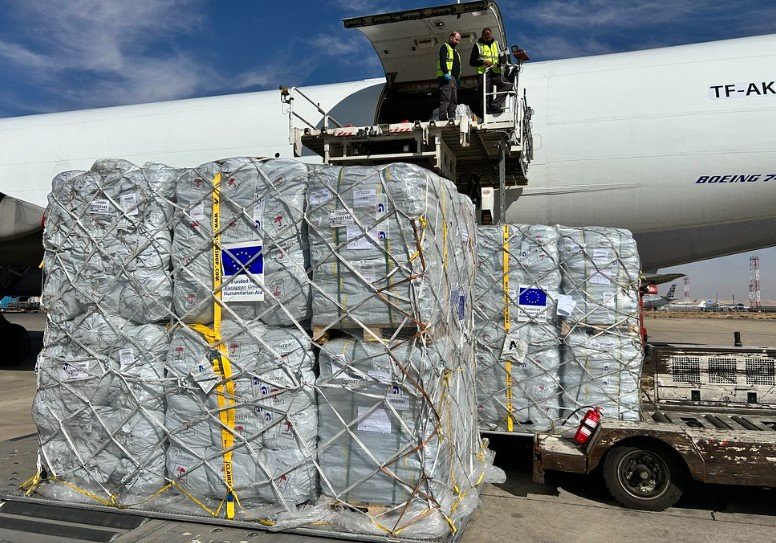Egypt holds key power in the Gaza conflict through its control of the Rafah border crossing, yet President Abdel Fattah el-Sisi has not fully used this leverage to push back against Israel’s actions. As of August 2025, aid trucks pile up on the Egyptian side while famine threatens over two million Palestinians in Gaza, raising questions about Cairo’s strategy amid growing global criticism.
The Rafah Crossing: A Lifeline Under Siege
The Rafah crossing stands as Gaza’s main gateway for aid and movement, but Israeli forces have repeatedly disrupted it. Israel first seized the Palestinian side in May 2024, withdrew in January 2025 as part of a ceasefire, and reoccupied it in March during Operation Might and Sword. This has left Egypt in a tough spot, with hundreds of aid trucks stuck in the desert heat.
Recent reports show that only a fraction of needed supplies gets through due to strict Israeli inspections and bombings. Aid groups warn that without full access, malnutrition and disease will worsen. In July 2025, the United Nations reported over 1,000 children treated for severe hunger in Gaza’s few remaining hospitals.
Egypt has sent multiple convoys, including the 15th batch in early August 2025, carrying food, medicine, and water. Yet, many trucks face looting once inside Gaza, complicating delivery efforts.
Egypt’s Tools of Influence Against Israel
Egypt possesses several forms of leverage that could pressure Israel to ease restrictions on Gaza. The 1979 peace treaty gives Cairo control over the Sinai Peninsula and the border, allowing it to influence aid flow and border security.

Experts point out that Egypt could threaten to limit cooperation on security matters, such as intelligence sharing against militants in Sinai. Another option involves diplomatic moves, like calling for international mediation or suspending parts of the treaty if violations continue.
Here are key levers Egypt could pull:
- Border control: Fully opening Rafah without Israeli approval to flood Gaza with aid.
- Diplomatic pressure: Rallying Arab nations to isolate Israel economically.
- Military posture: Increasing troop presence near the border to signal readiness for escalation.
In recent months, Egypt has hosted talks with Palestinian leaders, including a visit by Prime Minister Mohammad Mustafa in August 2025 to discuss aid routes.
Public sentiment in Egypt strongly supports Gaza, with protests demanding more action. However, the government has cracked down on demonstrators, arresting dozens since the conflict intensified.
Reasons Behind Sisi’s Restraint
President Sisi’s caution stems from a mix of domestic and international factors. Egypt relies heavily on U.S. aid and support from Gulf states, which could dry up if Cairo confronts Israel too aggressively. Washington provides billions in military assistance annually, tied to maintaining peace with Israel.
Sisi also fears that opening the border fully might lead to a mass influx of Palestinians into Egypt, straining resources and security. Past incidents, like the 2008 border breach, saw thousands cross temporarily, creating chaos.
Critics argue Sisi prioritizes regime stability over Palestinian aid. His administration has faced accusations of cooperating with Israel on the siege, including limiting aid to avoid empowering groups like Hamas.
Economic ties play a role too. Egypt benefits from natural gas deals with Israel, worth millions, which could be at risk in a confrontation.
Global Reactions and Aid Challenges
The international community has ramped up calls for action as the crisis drags into its second year. The U.S. and European Union have urged both Egypt and Israel to facilitate more aid, but progress remains slow.
In August 2025, Foreign Minister Badr Abdelatty visited Rafah with Palestinian officials, highlighting Egypt’s efforts to coordinate deliveries. Despite this, aid workers report that Israeli controls cause delays, with trucks waiting days for clearance.
| Key Aid Statistics (As of August 2025) | Details |
|---|---|
| Aid Trucks Stuck at Rafah | Over 500, carrying food and medical supplies |
| Daily Aid Entries Allowed | Average of 20-30 trucks, far below the needed 500 |
| Malnourished Children in Gaza | Estimated 50,000 cases, up 20% from July |
| Egyptian Convoys Sent | 15 since June, totaling 2,000 tons of supplies |
| Looting Incidents | 60% of trucks looted on first day in Gaza |
These figures underscore the urgent need for better coordination. Aid organizations like the Red Cross have proposed escorted convoys to prevent theft.
Potential Paths Forward for Egypt
Looking ahead, Egypt could shift its approach by leveraging upcoming peace talks. Analysts suggest Sisi might use the border issue to negotiate broader concessions, such as rebuilding Gaza’s infrastructure.
If tensions rise, Egypt could appeal to the International Court of Justice, building on its 2024 ruling that found plausible genocide in Gaza. This could force Israel to withdraw from the Philadelphi Corridor.
However, without bold moves, the humanitarian disaster may worsen, with famine projections for late 2025. Egypt’s role remains pivotal, as it controls the only non-Israeli border with Gaza.
Share your thoughts on Egypt’s strategy in the comments below, and spread this article to raise awareness about the Gaza crisis.
